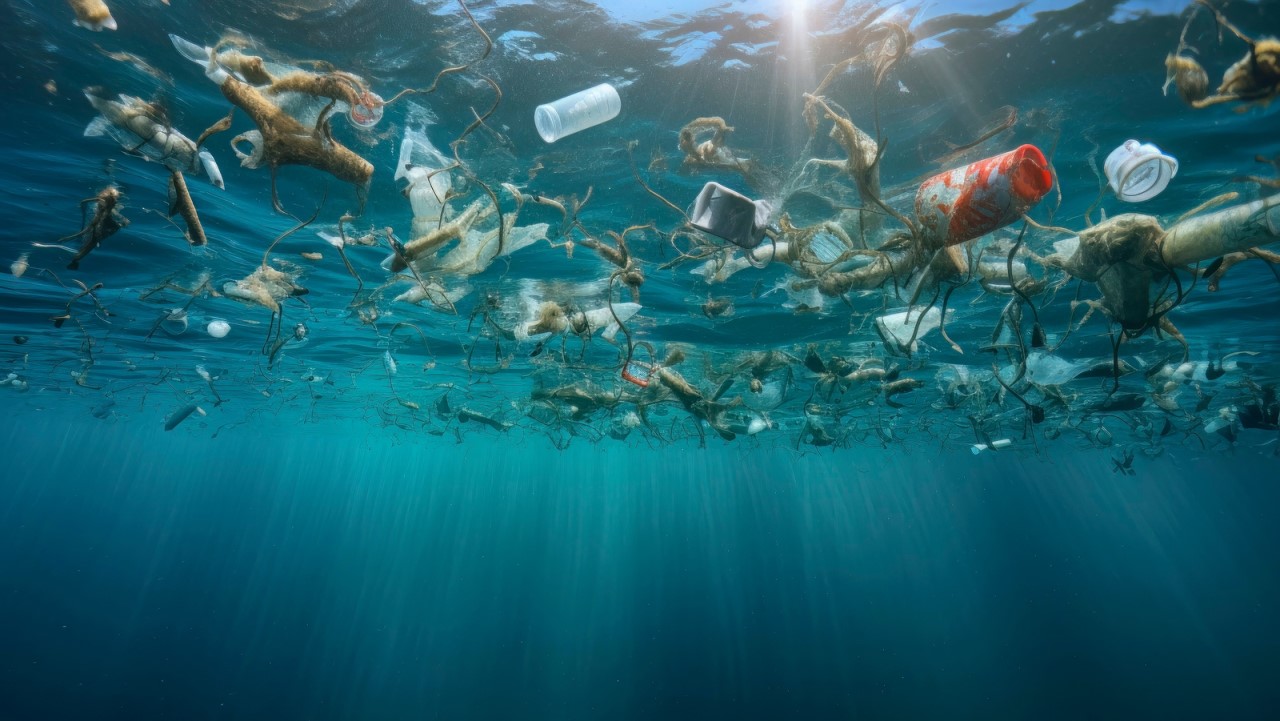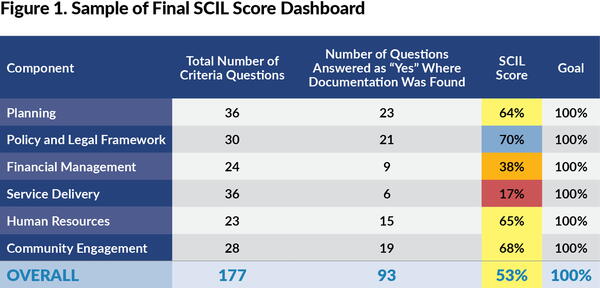
Ocean plastic pollution is a major global problem and ICMA is doing its part to prevent plastic from making its way into waterways where it can damage wildlife, human health, and the environment. As an implementing partner for the United States Agency for International Development (USAID) Clean Cities, Blue Ocean (CCBO) program, ICMA is giving local governments the guidance and tools they need to prevent plastics from leaking into the ocean.
In 2019, USAID launched CCBO as its global flagship program to combat ocean plastic pollution as part of the Save Our Seas initiative. The five-year, $53 million program supports local governments to strengthen land-based waste management practices and work toward establishing sustainable and economically and environmentally sound solid waste management (SWM) and 3R (reduce, reuse, recycle) programs that reduce pollution and advance the circular economy. CCBO supports over 25 cities in 10 countries (the Dominican Republic, Federated States of Micronesia, Fiji, Indonesia, Maldives, Papua New Guinea, Peru, Philippines, Sri Lanka, and Vietnam). USAID’s five building blocks for reducing ocean plastic pollution create the foundation for the program:
1. Data-driven policies for circularity.
2. Effective solid waste services and investment.
3. Green jobs and local innovations.
4. Sustained behavior change to reduce single-use plastics.
5. An inclusive, just, and equitable system.
As a CCBO partner with extensive knowledge and experience concerning good governance practices, ICMA was brought in to lead the first building block with a focus on advancing local capacity and governance to ensure the development of sustainable solid waste systems that effectively reduce, capture, and manage plastics.
Approach and Impacts
ICMA first established knowledgeable CCBO capacity development and governance managers within select countries, who then in turn established relationships with local government elected officials, staff, and stakeholders to create a platform for dialogue and information exchange. This was then fortified with tools, technical assistance, training, and grants, which supported the capacity development needed for the cities to build up their internal capabilities and knowledge. The primary goal for ICMA’s team was to institutionalize enough best practices within the policies, infrastructure, practices, and plans of these cities that they would carry on and progress toward sustainable solid waste systems even after the CCBO program ended.
As CCBO heads into its fifth year, ICMA’s impact through its participation in CCBO has been substantial — improving governance practices and management of solid waste (especially plastic) by providing key tools, practices, and approaches that will create benefits for years to come. ICMA has made significant contributions, especially in the following target areas:
- Governance capacity.
- Solid waste legal compliance.
- Revenue funding.
- Policy development.
- Planning.
The following are some of the achievements in the aforementioned target areas and examples of how local communities are benefitting from CCBO’s support.
Governance Capacity
Within many local governments, multiple departments are involved in SWM or 3Rs without any one of them having a clear understanding of where the city stands (as a whole) in terms of its ability to maintain a sustainable solid waste system. Without this knowledge, it is hard for a local government to know how to invest its resources to have the greatest impact on reducing plastic pollution.
To provide guidance on how to navigate through these complexities, ICMA developed an index assessment tool for CCBO known as the Solid Waste Capacity Index for Local Governments — referred to by the acronym SCIL (pronounced “skill”). The SCIL is intended to be a practical, self-assessment tool for local governments to improve their 3R/SWM systems by first determining the areas where gaps may exist in their capacity that are limiting their ability to create, expand, and/or sustain these systems. It is a Microsoft® Excel-based assessment tool that poses yes/no questions in six component areas (listed in Figure 1). The “yes” answers that can be supported by documentable evidence tally points. Once completed, SCIL scores are generated (see Figure 1) and can be used by staff to frame recommendations on how to improve the system in the future — and, when repeated and compared over time, can measure progress and track how a local government is advancing its 3R/SWM system toward best practices.

To date, over 20 cities have used this practical and methodical approach to identify and discuss the many complex and interrelated issues presented in the six solid waste components. In each city, the assessments resulted in a set of recommendations (developed and prioritized by the staff) that became the foundation for updated SWM plans, future city budget requests, and joint program work plans with each city.
These outputs weren’t the only achievement. The SCIL process often exceeded expectations. For example, by simply establishing a 3R/SWM group and bringing together agency representatives with the common goal of assessing the city’s 3R/SWM system, it often created a pathway to communication and collaboration where it had not existed previously. Additionally, the recommendations often were ground-breaking and adopted by the cities, leading to achievements in funding, policies, compliance, and planning, described in more detail later in this article.
One of the more long-lasting benefits was that the process was capacity-building in and of itself. By having to seek answers to such varied questions, each participating member of the group learned what 3R/SWM best practices are, their role in that system, and what their system should be striving toward. A comment made by Taufiq Djabbar, head of the Makassar (Indonesia) Waste Management Division, reflected what many participants felt: “We thought we were doing a good job with our waste but, because of the SCIL, we realized that there is more that we need to work on.”
Solid Waste Legal Compliance
All CCBO partner countries have passed national solid waste laws that impose programmatic, policy, and financial requirements on local governments. Following all these standards can be very important — not only to avoid penalties for noncompliance but also to benefit from the related improved environmental and health practices. Because of the many areas requiring compliance, however, it can be difficult for local governments to know whether they are following each statute. So, a thorough analysis is required.
To support this process, ICMA developed an approach, and provided support, so that each CCBO engagement site could conduct a Solid Waste Compliance Gap Analysis, which starts with the identification of clauses in every national or provincial solid waste law for which a local government is responsible for taking action. These clauses are entered into a spreadsheet and categorized according to the six components of a solid waste system used in the SCIL. A comparison is then made between what these clauses require and the current practice within a jurisdiction and characterized as either compliant, partially compliant, or noncompliant. Some of these clauses are straight-forward instructions, such as “prohibit cows from accessing all landfills.” Others establish goals that must be achieved, such as “30% reduction through source segregation by 2030.” For those clauses that are determined by the staff to be not in full compliance, a recommendation is crafted that describes what is needed for the city to achieve compliance. This results in a large spreadsheet that examines as many as 90 different aspects of environmental laws with which the city must comply.
A report is then developed to make sense of all this information and provide a clear path forward. To help organize and present this information, ICMA developed an outline that serves as a template to document the process that was used, the laws examined, and quantify how many partially compliant or noncompliant clauses the city needs to address.
The next step suggested is to present all the recommendations and summarize the recommended actions (by the six categories) that the jurisdiction needs to take to become in compliance with the national or provincial laws. In this way, the report provides a clear checklist of items that the jurisdiction needs to undertake. If there are a significant number of recommendations, it is recommended that an additional step be taken to prioritize them before presenting a schedule of when each item should be completed.
These reports, when presented to the governing bodies, have proven to be quite informative and have effectively become a briefing on what steps need to be taken to be legally in line with national and provincial solid waste priorities.
Revenue Funding
Insufficient funding is a major issue in almost every country CCBO supports. The reasons for this varied, but a common issue is that new sources of revenue were needed that could be specifically used to make improvements to solid waste systems. To address this problem, ICMA developed the Funding Options for Solid Waste Systems in Low- to Middle-Income Countries report, which provides context and an approach for local governments to explore 3R/SWM funding options. The report provides examples of different self-generated and third-party options to raise these revenues.
CCBO also held funding option workshops for each program-supported city, where local stakeholders discussed their funding needs, learned about the options described in the funding options report, examined what opportunities or limitations existed for raising the revenues needed, and identified actions. The results were very positive. Almost every city was able to identify one or more ways to raise revenues. One city, Iloilo in the Philippines, made an immediate decision to simply raise its solid waste fees and fines by 100%. This was approved by the local council and a date was set for the fee changes. A popular funding option that is being explored by multiple CCBO cities is a solid waste fee for tourists (who generate a significant quantity of waste). This may be collected as a charge by room-night at hotels, as a port of entry fee, or at attraction sites. In Indonesia, the city of Makassar determined it could raise the equivalent of US$400,000 annually to increase funds for its solid waste system by imposing a US$1 fee at its tourist destinations.
Policy Development
ICMA has also supported CCBO cities to institutionalize the changes that have been recommended through new policies, laws, and plans that are officially approved and adopted by their governing bodies. These statutes have taken several forms and cover a variety of topics, including changes to environmental codes, solid waste regulations, and tax laws. What is key, though, is that CCBO cities codify fundamental long-term improvements that will remain in place even if government staff or elected officials come and go, bringing much needed stability to programs and services that are often challenged by regular changes in leadership.
Planning
Together with CCBO implementing partners Tetra Tech Solid Waste West, ICMA has also supported CCBO cities to develop or strengthen SWM plans to be strategic and data-driven — not simply describing aspirations on how to move toward a circular economy, but describing the logistics and costs of what needs to be put in place for goals to be met. For example, in Phu Quoc, Vietnam, the SCIL Implementation Group recommended that a Solid Waste Segregation Plan be developed. The staff completed the plan and it is likely to be one of the more strategic and data-driven plans ever approved by a people’s committee in Vietnam. The implementation of this plan, approved in December 2023, should institutionalize Phu Quoc’s waste reduction approach to 3R/SWM for years to come.
Global Impact
While the immediate positive influence of the CCBO program is evident in the cities of the 10 focal countries, the benefits are sure to have a ripple effect. National/provincial governments are encouraging other cities to follow the process and protocols used to improve solid waste systems in the CCBO cities through CCBO’s tools, trainings, case studies, and educational materials (available at urban-links.org/ccbo). ICMA expects its impact in these cities, and around the globe, to be sustained and continue beyond its support to CCBO.

LORI SCOZZAFAVA is capacity and governance director for the CCBO Program at ICMA.
New, Reduced Membership Dues
A new, reduced dues rate is available for CAOs/ACAOs, along with additional discounts for those in smaller communities, has been implemented. Learn more and be sure to join or renew today!

